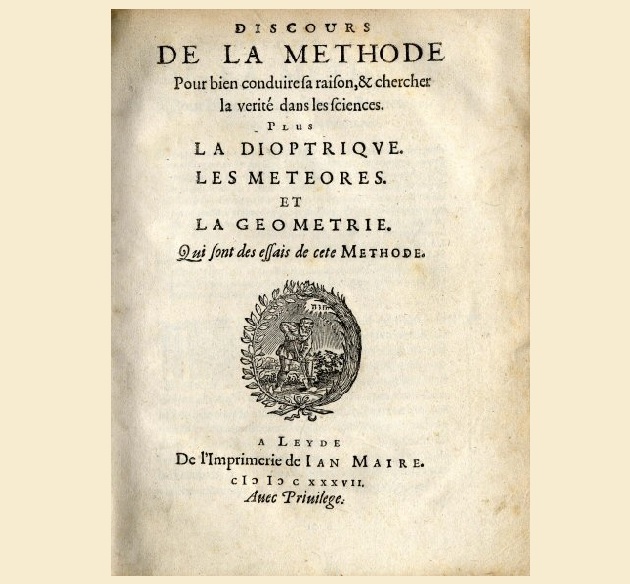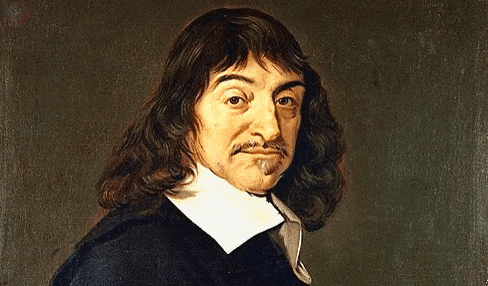René Descartes (1596-1650) was a French philosopher and mathematician.
Creator of Cartesian thought, a philosophical system that gave rise to Modern Philosophy. He is the author of the work “ The Discourse on the Method ”, a philosophical and mathematical treatise published in France in 1637.
One of the most famous phrases in his speech is “ I think, therefore I am ”.
Descartes’s Biography
René Descartes was born in Haye, former province of Touraine (today Descartes), France, on March 31, 1596.
Between 1607 and 1615, he studied at the Royal Henry – Le Grand Jesuit College, established in the castle of La Fleche, donated to the Jesuits by King Henry IV.
He studied law at the University of Poitiers, completing the course in 1616, but he never practiced law.
Disappointed with the teaching, he said that scholastic philosophy does not lead to any indisputable truth. Only mathematics shows what it says.
In 1618, he began studying mathematics with the Dutch scientist Isaac Beeckman.
At the age of 22 he began to formulate his analytical geometry and his method of reasoning correctly.
It broke with the philosophy of Aristotle, adopted in the academies and, in 1619, it proposes a unitary and universal science, laying the foundations of the modern scientific method.
Descartes enlisted in the army of Prince Maurice of Nassau. Between 1629 and 1649 he lived in the Netherlands, serving in the army on several trips.
He performed several works in the area of philosophy, science and mathematics. He related algebra to geometry, a fact that gave rise to analytical geometry and the coordinate system, known today as the Cartesian Plan .
In “ The Treaty of the World ”, a work of physics, Descartes addresses the thesis of heliocentrism . However, in 1633 he abandoned the plan to publish it, due to Galileo’s condemnation by the Inquisition.
In 1649, he went to Stockholm, Sweden, as a teacher at the invitation of Queen Cristina. On February 11, 1650, René Descartes died, suffering from pneumonia.
Descartes and Philosophy
Descartes proposed a philosophy that never believed in the false, that was totally grounded in the truth. His concern was for clarity.
He suggested a new view of nature, which canceled out the moral and religious significance of the time. He believed that science should be practical and not speculative.See also: Modern Philosophy
Descartes Main Ideas

The Discourse on Method , the work of Descartes in 1637, is a philosophical and mathematical treatise that laid the foundations of rationalism as the only source of knowledge.
He believed in the existence of an absolute, indisputable truth. To achieve it, he developed the method of doubt, which consisted of questioning all pre-existing ideas and theories.
Exposes 4 rules to reach knowledge:
- Nothing is true until it is recognized as such;
- Problems need to be analyzed and resolved systematically;
- Considerations must start from the simplest to the most complex;
- The process must be reviewed from beginning to end so that nothing important is omitted.
For this, Descartes created the method of doubt. By doubting everything as much as possible, you would attain true knowledge, something sure that cannot be doubted (undoubtedly).
Initially, the philosopher doubts the senses, since the senses can be sources of deception.
Then he draws attention to the impossibility of recognizing a dream. In this way, everything we call reality can only be elements of a dream.
But, realize that even in dreams the mathematical rules are not changed. Descartes says that mathematics is a little purer knowledge. However, we may be under the influence of an evil genius, a deceptive god, who makes us believe in certain things (for example, 2 + 2 = 4 or that a triangle has three sides).
Descartes became convinced that the only possible truth was his ability to doubt, reflecting his ability to think.
Thus, the absolute truth would be synthesized in the formula “I think”, from which it concluded its own existence. His theory started to be summarized in the phrase “ I think, therefore I am ” (in Latin, Cogito, ergo sum ).
Descartes quotes
In addition to his most famous phrase ” I think, therefore I am “, below are some sentences from the philosopher, which translate part of his thought.
Living without philosophizing is what is called having your eyes closed without ever trying to open them . ”
If you want to really search for the truth, you need to doubt at least once in your life, as much as you can, of all things . “
There are no easy methods for solving difficult problems . ”
There is nothing in the world that is better distributed than reason: everyone is convinced that they have plenty of it . ”
To examine the truth, it is necessary, once in a lifetime, to put everything in doubt as much as possible . ”
It is not enough to have a good mind: the main thing is to use it well . ”

